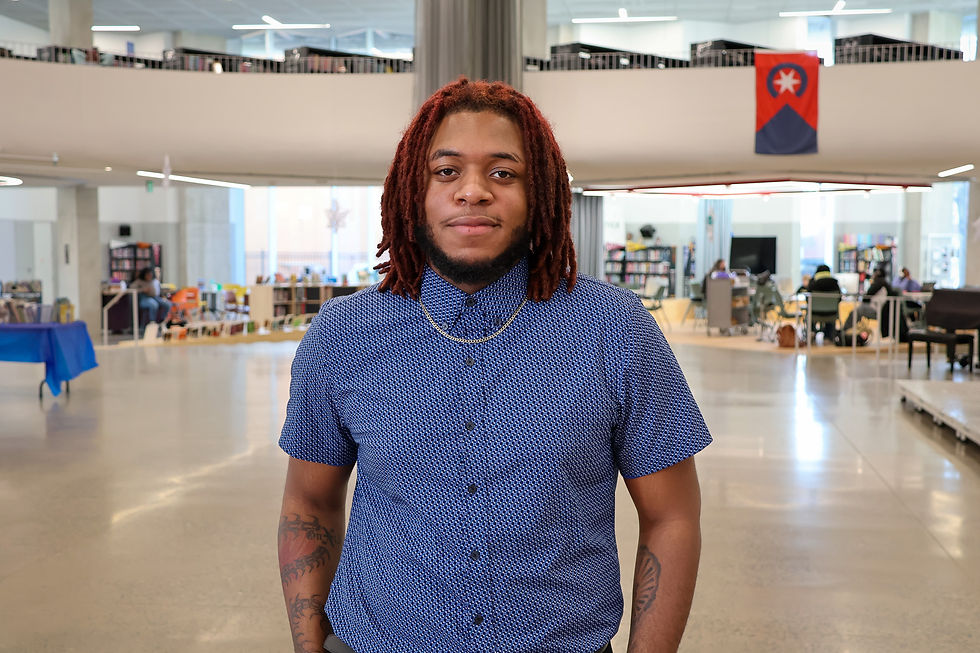Head Start teachers advise how to avoid 'summer slide'
- Jun 18, 2024
- 3 min read
Summer is a time of relaxation and fun, but it is important for families to try and keep young children’s minds engaged and active while they are not in school.

Research shows many children experience a ‘summer slide’ over summer break, particularly when it comes to math, reading and writing. There are especially concerns of learning loss in high-poverty areas where vulnerable children may not have as much access to unique enrichment opportunities. The ‘summer slide,’ or ‘summer setback,’ refers to the decline or loss of academic skills when students are out of school and away from a formal learning environment. According to Forbes, throughout the summer, children may lose up to 40-percent of the knowledge they gained throughout the school year.
“As a teacher, I witness the impact of summer learning loss every year,” Emily Johnson, a teacher at Step Forward’s George Forbes Early Learning Center, explained. “I believe that with engaging activities and a nurturing environment, we can reignite their passion for learning and bridge any gaps caused by summer break.”
There are several factors that contribute to summer learning loss in young children, including limited access to educational resources, fewer opportunities for social stimulation, and a lack of structure and routine. To address this, families are encouraged to provide opportunities for ongoing learning and engagement throughout the summer season.
Step Forward’s Head Start teachers provided a short list of low-cost and free activities they would recommend families experience with young children:
Visit the local library: Libraries offer age-appropriate books and free story time sessions. Many offer summer reading programs, which provide children with motivation to read during summer break. You can also start an at-home summer reading program!
Take a nature walk: Engaging with nature is a special opportunity for children to learn about the world around them. Families can take walks in the Cleveland Metroparks, nearby parks and trails or nature reserves and encourage children to observe and ask questions about plants, insects and animals. Families can also organize nature-themed crafts and scavenger hunts.
Do science experiments at home: There is a plethora of easy and safe experiments that can be done with household items. For example, with baking soda and vinegar, children can make a volcano erupt. With eggshells and flour, children can make eggshell chalk. Children love to make tornadoes in a bottle with water and dish soap. Each of these experiments can be found online.
Get dirty in the kitchen: Children love to be involved in the kitchen! Parents and guardians can have children help with basic cooking and baking. Cooking can also help promote math concepts like counting, measuring and following instructions.
Set up an obstacle course: Design an obstacle course in the backyard or in the house based on the items that are available, such as chairs, tires, cones, buckets, and child toys. This will get children physically active and problem-solving.
“There is a transformative power of keeping young children active throughout the summer,” Johnson said. “It isn’t just about preventing learning loss; it’s about fostering their development. Through outdoor adventures, creative projects, and hands-on experiences, we can ignite their senses, spark their curiosity, and nurture their physical, social and cognitive growth that pave the way for seamless academic progress when we start the school year again.”
Several teachers have shared concerns about children who have experienced a summer learning loss. They explained those children have to work harder to get back to the level of their peers once they return to the classroom, regardless of their age.

“There are free printables online so that children can practice their letters, numbers, and writing,” Johnson recommended. “And if nothing else, we suggest families identify screen-free play time for their children. Whether they play a game, do a puzzle, color, or rely on imaginary play, there are so many benefits such as enhancing their creativity, improving self-confidence and communication skills, and encouraging independence and problem-solving skills.”
Give your child a Head Start and enroll today! Click here.
Step Forward Head Start is hiring!
The agency is offering a sign-on bonus of $1,000 for full time employees and $500 for part-time employees.
Positions include teachers, family service workers, nutrition aides and more. Step Forward Head Start is looking for education staff passionate about preparing young students for the future and helping them develop a love for learning early. Take a step toward a new fulfilling career today! Learn more and apply to open positions



